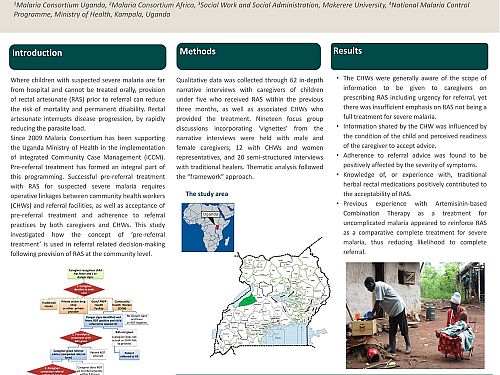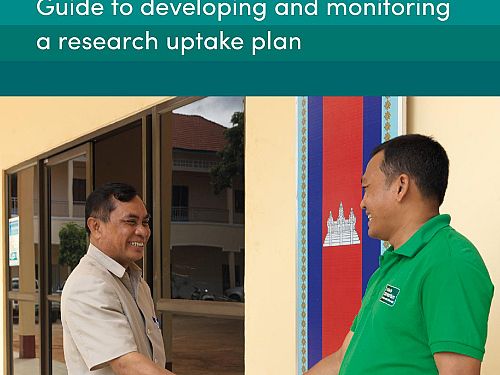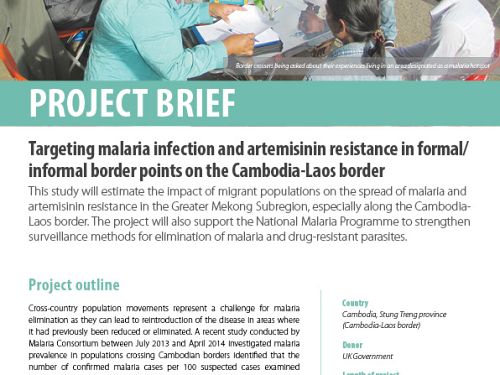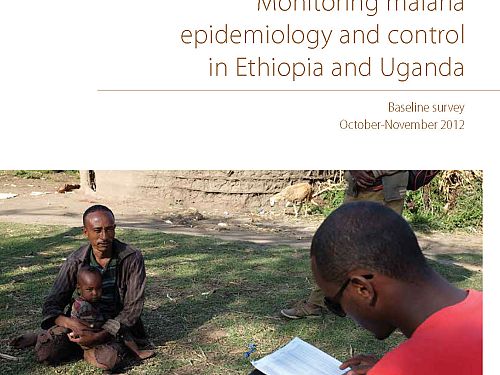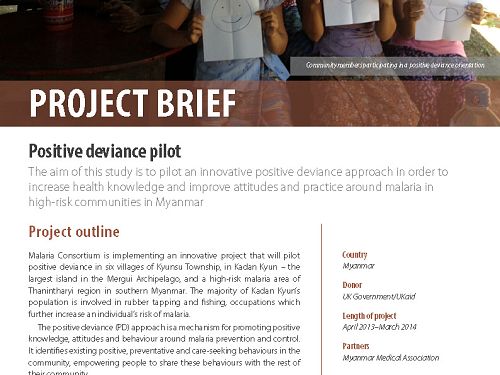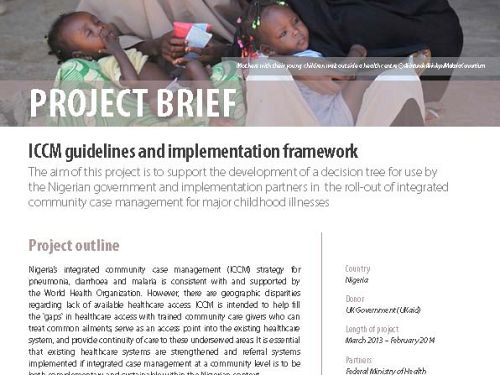Project overview
Since 2011, we have been engaged in a Programme Partnership Arrangement (PPA) with the UK Government’s Department for International Development (DFID) for £2.67 million per year until March 2016. This strategic funding enables us to pursue activities that we otherwise would not be able to, allowing us to maximise impact. PPA is one of DFID's main support mechanisms for civil society enabling them to plan and deliver programmes including in more difficult, higher risk environments. We use this flexible strategic funding to drive forward strategic projects and achieve our mission to bring people relief from and protection against communicable diseases, especially malaria, by being a leading organisation combining cutting edge technical ability and operational excellence.
Worldwide, 1.2 billion people are at high risk of malaria and over three billion are at risk of neglected tropical diseases (NTDs). Malaria Consortium’s goal for the 2014-16 PPA funding period is to undertake strategic activities which contribute to reducing death and disability caused by malaria, NTDs and common childhood illnesses in some of the world’s poorest countries. These diseases affect not only health but also negatively affect economies. The new Roll Back Malaria ‘Action and Investment to Defeat Malaria’ estimates that over US$4 trillion of additional economic output would be generated between 2016 and 2030 if targets are met.
We have invested our PPA 2014-16 funds into five priority themes:
- Strengthening the malaria evidence base
- Expanding our work into neglected tropical diseases
- Eliminating the threat of artemisinin resistant malaria parasites in Southeast Asia
- Integrating malaria and other childhood illnesses into community services
- Communicating learning and pursuing internal organisational development
PPA invests in projects that: contribute to our Strategic Plan and to DFID’s health strategy and priorities; further the international public health sector or the global evidence base; address national priorities set by ministries of health and partners; add value by allowing us to adapt and be responsive to emerging technical and country needs; position the organisation for future opportunities; and build capacity, efficiency and sustainability of the organisation.
This year, PPA is active in eight countries.
We have invested to build capacity at all levels of the health system, underpinned by a sound evidence base and supported by the sharing of learning. This helps us achieve better health outcomes and stronger health systems and, as a result, creates sustainable impact. In addition, we have invested in organisational development to increase our capacity to carry out activities better and ensure smooth running of the organisation.
Building on the successes of PPA 2011-14, this year’s funding has resulted in:
- Scaling up our role as a leading expert in the sector
- Saving more lives and preventing disability by growing our focus on NTDs
- Adding value to previous PPA-funded research by ensuring its uptake in policy and practice
- Expanding proven approaches to new geographical areas
- And embedding new organisational systems in human resources, finance, business development, operations, technical and programmes departments.
We strengthened best practice areas, such as the disaggregation of data by gender (that is now complete for 95 percent of PPA data), as well as improved the management of environmental impact – for example, by introducing standard operating procedures for the disposal of rapid diagnostic tests in Cambodia and Uganda.
back
